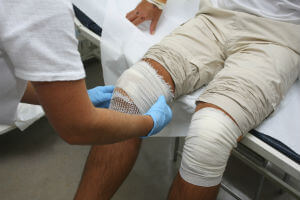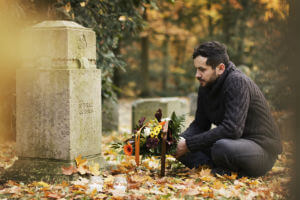Every personal injury case is different, but insurers, juries, and attorneys review a lot of the same factors when trying to determine the value of a claim.
Review the six most important factors below and find out why your best chance of obtaining all of the compensation you deserve is to hire an experienced personal injury lawyer in Savannah.
Our skilled lawyers have handled a wide variety of personal injury claims and know how to review all of the details of your claim to determine an accurate valuation.
Here are six of the most important factors in assessing a personal injury claim’s value:
ECONOMIC DAMAGES FROM THE ACCIDENT
These are the economic losses you experienced because of your injury. These all have a defined monetary value. Examples of economic damages include:
MEDICAL BILLS
This includes all past, current and future medical bills from your injury, including the cost of:
- Emergency room visits
- Transportation in an ambulance
- Office visits with your primary care doctor and any specialists
- Physical therapy
- Medical imaging, including MRIs, x-rays and CT scans
- Blood tests
- Surgery
- Durable medical equipment you need because of your injury
- Prescription drugs
- In-home care
The more severe your injuries, the more medical expenses you are likely to have, and the more money you could recover in your personal injury claim.
However, one issue you may have to contend with is the perception of the severity of your injury. For instance, even though soft tissue injuries such as whiplash can result in severe health problems and create costly medical bills, insurance companies tend to view these injures as less severe than broken bones.
This is the reason why car insurance companies often lowball people making claims for soft tissue injuries, even though these injuries can cost several thousand dollars or more to treat.
The Nye Law Group’s experienced attorneys know how to battle these false perceptions so our clients receive fair compensation for the medical expenses they have incurred.
DOCUMENTATION OF MEDICAL BILLS
When you go to the hospital after your accident, make sure medical professionals thoroughly examine you to discover all of the injuries you have suffered. If the injury is documented, and you are able to prove that it was caused by the accident, you should be able to obtain compensation for any treatment you receive for the injury.
Obtain copies of all medical records of the treatments you receive. You also need to save all bills and receipts for your medical care to show how much all of your medical expenses cost you.
The Nye Law Group’s attorneys can help ensure you have all of the documentation you need to recover the compensation you deserve. We also know how to determine the cost of future medical treatment you will receive that is related to your injury.
LOST WAGES
If you miss work or can no longer do your job because of your injury, you could be entitled to compensation for lost wages and salary both now and in the future.
You can even recover compensation if you used sick days or vacation days on days when you could not make it to work because you were receiving treatment for your injury or were physically unable to work.
Ask your employer to write a letter providing the following information about the time you missed from work:
- Dates and times you missed work, including full days, half days and partial days missed
- Your salary or hourly wage
- Number of hours and overtime you usually work on a normal week
PROPERTY DAMAGE
This most often comes up in car accident claims. If your car was damaged in an accident that was caused by another driver, you should be able to recover compensation to fix your car or replace the fair market value if your car was totaled in the crash.
This also applies to other property damaged in your accident, even if it was not a car accident. For example, you could recover compensation for damage to clothing or real estate.
OTHER OUT-OF-POCKET EXPENSES
Sometimes a personal injury is so severe that you are physically unable to do some of the things you used to do, such as household chores, yard work, taking trips to the grocery store or transporting your children to and from school.
If you have to pay someone to do these things, you might be able to recover compensation for it in your personal injury claim. Make sure you save receipts showing how much you paid and what you were paying for.
NON-ECONOMIC DAMAGES FROM THE ACCIDENT
It is more difficult to determine non-economic damages because there is no monetary value associated with them. There are no receipts showing the monetary amount of physical, mental or emotional suffering you experienced after suffering your injury.
Examples of non-economic damages include:
- Physical pain
- Mental suffering
- Permanent disfigurement or disability caused by your injury
- Loss of enjoyment of hobbies, exercise or other recreational activities
- Emotional distress or anguish
- Loss of companionship because the injury affected your relationship with your spouse or children
Our attorneys can advise you on the best ways to document your non-economic damages, which could include keeping a daily journal where you explain what you are going through.
We have access to medical experts who can explain the damages you are experiencing and help us place a value on them.
Our goal is to recover fair compensation for all of the non-economic damages you have experienced or will experience in the future.
PUNITIVE DAMAGES
These are available only in cases where there is clear and convincing evidence that the defendant displayed willful misconduct, malice, fraud, wantonness, oppression or an entire want of care that makes a judge or jury conclude that the defendant was consciously indifferent to the consequences of his or her actions, according to the Official Code of Georgia (O.C.G.A.) 51-12-5.1.
The purpose of punitive damages is not to provide compensation, but to punish the defendant and deter others from engaging in similar conduct.
Georgia places a limit of $250,000 on punitive damages unless the case involves product liability or intentional actions by the defendant. In those two types of cases, there is no cap on damages.
GEORGIA’S MODIFIED COMPARATIVE FAULT LAW
There are often cases where the plaintiff shares some level of responsibility for his or her injuries. That is why many states, including Georgia, have implemented comparative fault laws.
Georgia’s modified comparative fault law (O.C.G.A. 51-12-33) says that plaintiffs cannot recover compensation if they are 50 percent or more responsible for the accident.
If plaintiffs are less than 50 percent responsible, their compensation award will be reduced by their percentage of fault for the crash. This means that if you are 30 percent at fault, your compensation award will be reduced by 30 percent. In other words, an award of $100,000 would become $70,000.
Courts will apply these rules, and in some cases, so will insurance companies. You need a skilled attorney to build a strong case that ensures you are not assigned more blame for your injuries than you deserve.
CAUSE OF THE ACCIDENT
In the case of car accidents, claims involving drunk drivers or drivers who left the scene of the accident will probably be more valuable than claims involving minor traffic violations.
The more severe the negligence, the more valuable your claim is likely to be. Part of the reason for this is that severe negligence opens the door to punitive damages.
YOUR ACTIONS AFTER THE ACCIDENT
What you do after the accident could have a positive or negative affect on the value of your claim. That is why you should avoid these mistakes:
WAITING TO SEEK MEDICAL CARE
You need to seek medical attention as soon as possible. You do not want to give the defendant or insurance company reason to doubt that your injuries were caused by the accident. That could make settlement negotiations more contentious than they need to be, hurting your chances of obtaining fair compensation or dragging out the process.
NOT CONSULTING AN ATTORNEY
Without an attorney at your side, you could easily get overwhelmed with all of the steps in the insurance claims process and the process of filing a personal injury lawsuit.
You could fail to collect important evidence that increases the value of your claim or shows exactly why the defendant is at fault. You could inadvertently admit fault for the accident to the insurance company, reducing the value of your claim. You could also sign a written statement that unfairly limits the amount of compensation you receive without realizing that you deserve more money.
These are just a few of the mistakes you are at risk of making without an experienced attorney helping you.
The Nye Law Group’s experienced lawyers can guide you through the legal process, protecting your rights at every turn. Unlike the defendant, his lawyers or the insurance company, we are exclusively focused on obtaining fair compensation and doing what is in your best interest.
Schedule a free, no obligation legal consultation today to find out all of the ways we can help you. We work on a contingency fee basis, so we do not receive compensation unless we recover the compensation you deserve.
Contact The Nye Law Group today. Call 855-856-4212 or fill out a Free Case Evaluation form.






